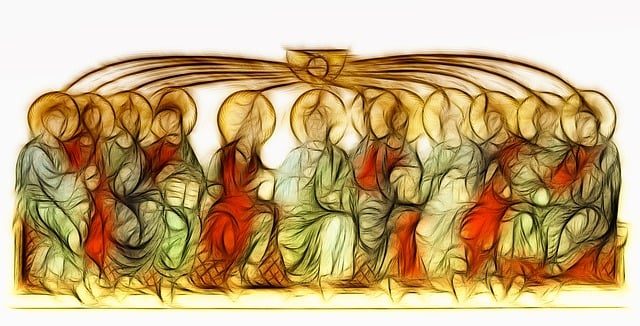No, being a born again Christian does not necessarily mean that one is a Pentecostal.
Table of Contents
The Origins and Beliefs of the Pentecostal Movement
Is born again Christian a Pentecostal?
To answer this question, it is important to understand the origins and beliefs of the Pentecostal movement. The Pentecostal movement emerged in the early 20th century as a result of a spiritual revival that emphasized the experience of the Holy Spirit. This movement placed a strong emphasis on the belief in the baptism of the Holy Spirit and the manifestation of spiritual gifts, such as speaking in tongues.
One of the key beliefs of Pentecostalism is the idea of being “born again.” This term refers to a personal conversion experience where an individual accepts Jesus Christ as their Lord and Savior and experiences a spiritual rebirth. This concept is not unique to Pentecostalism, as it is also a fundamental belief in many other Christian denominations.
However, what sets Pentecostalism apart is its emphasis on the baptism of the Holy Spirit as a subsequent experience to being born again. Pentecostals believe that after being born again, believers should seek and receive the baptism of the Holy Spirit, which is often accompanied by speaking in tongues. This experience is seen as a way to empower believers for ministry and to receive spiritual gifts.
It is important to note that not all born again Christians identify as Pentecostal. While the belief in being born again is shared among many Christian denominations, the emphasis on the baptism of the Holy Spirit and the manifestation of spiritual gifts is specific to Pentecostalism. Therefore, a born again Christian may or may not identify as Pentecostal, depending on their beliefs and practices.
Furthermore, Pentecostalism is not a monolithic movement. There are various Pentecostal denominations and independent churches, each with their own distinct beliefs and practices. Some Pentecostal churches may place a strong emphasis on speaking in tongues and the manifestation of spiritual gifts, while others may have a more balanced approach that incorporates other aspects of Christian faith.
In recent years, there has been a growing movement known as “charismatic Christianity” that has blurred the lines between Pentecostalism and other Christian denominations. Charismatic Christians, regardless of their denominational affiliation, embrace the belief in the baptism of the Holy Spirit and the manifestation of spiritual gifts. This has led to a broader acceptance and incorporation of Pentecostal practices within the wider Christian community.
In conclusion, while being born again is a fundamental belief shared among many Christian denominations, being a Pentecostal specifically refers to embracing the belief in the baptism of the Holy Spirit and the manifestation of spiritual gifts. Not all born again Christians identify as Pentecostal, as this term is specific to those who adhere to the distinct beliefs and practices of the Pentecostal movement. However, there is a growing acceptance and incorporation of Pentecostal practices within the wider Christian community, blurring the lines between Pentecostalism and other denominations. Ultimately, the choice to identify as a Pentecostal or not is a personal one based on individual beliefs and experiences.
Understanding the Concept of Being Born Again in Christianity

Is born again Christian a Pentecostal?
Understanding the Concept of Being Born Again in Christianity
When it comes to Christianity, there are various denominations and beliefs that can sometimes be confusing to those who are not familiar with the faith. One such concept that often raises questions is the idea of being “born again.” Many people wonder if being a born again Christian automatically makes them a Pentecostal. In this article, we will explore the concept of being born again in Christianity and clarify any misconceptions.
To begin with, being born again is a fundamental belief in Christianity that is not exclusive to any particular denomination. It is a spiritual rebirth that occurs when an individual accepts Jesus Christ as their Lord and Savior. This transformative experience is often described as a personal encounter with God, where one’s old self is crucified with Christ and a new life in Him begins.
While the term “born again” is not explicitly mentioned in the Bible, the concept is derived from Jesus’ conversation with Nicodemus in the Gospel of John. Jesus tells Nicodemus, “Truly, truly, I say to you, unless one is born again he cannot see the kingdom of God” (John 3:3). This conversation emphasizes the necessity of a spiritual rebirth for salvation.
Now, let’s address the question of whether being a born again Christian automatically makes one a Pentecostal. The answer is no. Pentecostalism is a specific branch of Christianity that places a strong emphasis on the Holy Spirit and the gifts of the Spirit, such as speaking in tongues, prophecy, and healing. While many Pentecostals identify as born again, not all born again Christians are Pentecostals.
Being born again is a personal experience that transcends denominational boundaries. It is about having a personal relationship with Jesus Christ and experiencing His transformative power in one’s life. Whether one identifies as a Baptist, Methodist, Catholic, or any other denomination, the experience of being born again is available to all who believe in Jesus Christ.
It is important to note that while being born again is a significant event in a Christian’s life, it is not the end of the journey. It is the beginning of a lifelong process of spiritual growth and transformation. As born again Christians, we are called to live a life that reflects the love and teachings of Jesus Christ.
In conclusion, being born again is a central concept in Christianity that is not limited to any specific denomination. It is a personal encounter with God that occurs when an individual accepts Jesus Christ as their Lord and Savior. While many Pentecostals identify as born again, being born again does not automatically make one a Pentecostal. It is a personal experience that transcends denominational boundaries and is available to all who believe in Jesus Christ. As born again Christians, we are called to live a life that reflects the love and teachings of Jesus Christ, regardless of our denominational affiliation.
Exploring the Relationship Between Pentecostalism and the Born Again Experience
Is born again Christian a Pentecostal? This is a question that often arises when discussing the relationship between Pentecostalism and the born again experience. While the two terms are often used interchangeably, it is important to understand the distinctions between them.
Firstly, let’s define what it means to be a born again Christian. The term “born again” comes from a conversation between Jesus and a religious leader named Nicodemus in the Bible. Jesus tells Nicodemus that in order to enter the kingdom of God, one must be born again, not physically, but spiritually. This spiritual rebirth happens when a person accepts Jesus Christ as their Lord and Savior and invites Him into their heart.
On the other hand, Pentecostalism is a specific branch of Christianity that places a strong emphasis on the Holy Spirit and the gifts of the Spirit. Pentecostals believe in the baptism of the Holy Spirit, which they see as a separate experience from salvation. This baptism is often accompanied by speaking in tongues, prophesying, and other manifestations of the Spirit’s power.
So, while all Pentecostals are born again Christians, not all born again Christians are Pentecostals. Being born again is a fundamental aspect of Christian faith that is shared by believers across various denominations. It is the starting point of a personal relationship with Jesus Christ and the foundation of one’s faith.
Pentecostalism, on the other hand, is a specific expression of Christianity that emerged in the early 20th century. It is characterized by its emphasis on the Holy Spirit’s work in the lives of believers and the belief in the continuation of the gifts of the Spirit as described in the New Testament.
It is worth noting that not all Christians who have had a born again experience identify as Pentecostals. Some may belong to other denominations that do not place as much emphasis on the gifts of the Spirit or have different theological perspectives. However, many Christians from various backgrounds have been influenced by Pentecostal teachings and practices, leading to a blending of beliefs and practices.
In recent years, there has been a growing interest in the charismatic movement, which seeks to bring together the best of both worlds – the born again experience and the power of the Holy Spirit. This movement has gained popularity among Christians who desire a deeper experience of God’s presence and a greater manifestation of the Spirit’s gifts in their lives.
In conclusion, while all Pentecostals are born again Christians, not all born again Christians are Pentecostals. Being born again is a foundational aspect of Christian faith that is shared by believers across various denominations. Pentecostalism, on the other hand, is a specific expression of Christianity that places a strong emphasis on the Holy Spirit and the gifts of the Spirit. However, there is a growing interest in the charismatic movement, which seeks to bridge the gap between the born again experience and the power of the Holy Spirit. Ultimately, what matters most is not the label we identify with, but the personal relationship we have with Jesus Christ and the transformation He brings into our lives.
Examining the Similarities and Differences Between Pentecostalism and Other Christian Denominations
Is born again Christian a Pentecostal? This is a question that often arises when discussing different Christian denominations. While there are similarities between the two, it is important to understand the distinctions that set them apart.
Firstly, let’s clarify what it means to be a born again Christian. This term refers to a personal experience of accepting Jesus Christ as one’s Lord and Savior, resulting in a spiritual rebirth. It is a fundamental belief shared by many Christian denominations, including Pentecostalism.
Pentecostalism, on the other hand, is a specific branch of Christianity that places a strong emphasis on the Holy Spirit and the gifts of the Spirit. It traces its roots back to the early 20th century, with the Azusa Street Revival in Los Angeles being a significant event in its history. Pentecostals believe in the baptism of the Holy Spirit, speaking in tongues, and the manifestation of spiritual gifts such as healing and prophecy.
While all Pentecostals are born again Christians, not all born again Christians are Pentecostals. This is because being born again is a broader concept that encompasses various Christian denominations. Many denominations, such as Baptists, Methodists, and Lutherans, also believe in the necessity of being born again through faith in Jesus Christ.
So, what sets Pentecostalism apart from other Christian denominations? One of the key distinctions is the belief in the baptism of the Holy Spirit and the subsequent speaking in tongues. Pentecostals believe that this experience is a separate event from the initial conversion and is accompanied by the evidence of speaking in an unknown language. This belief is not shared by all Christian denominations, leading to differences in practice and worship.
Another difference lies in the emphasis on spiritual gifts. Pentecostals believe that these gifts, such as healing, prophecy, and speaking in tongues, are still active and relevant in the present day. They view them as a manifestation of the Holy Spirit’s power and presence. Other denominations may also believe in spiritual gifts but may not place as much emphasis on their practice or may interpret them differently.
Despite these differences, there are also many similarities between Pentecostalism and other Christian denominations. Both believe in the Trinity, the divinity of Jesus Christ, and the authority of the Bible. They share a common belief in salvation through faith in Jesus Christ and the importance of living a holy and righteous life.
It is also worth noting that Pentecostalism is not a monolithic movement. There are various Pentecostal denominations, each with its own distinct practices and beliefs. Some may be more conservative, while others may be more liberal. This diversity within Pentecostalism further highlights the complexity of the question “Is a born again Christian a Pentecostal?”
In conclusion, while all Pentecostals are born again Christians, not all born again Christians are Pentecostals. Pentecostalism is a specific branch of Christianity that places a strong emphasis on the Holy Spirit, the baptism of the Holy Spirit, and the manifestation of spiritual gifts. However, there are many similarities between Pentecostalism and other Christian denominations, including the belief in salvation through faith in Jesus Christ. Understanding these similarities and differences can help foster a greater appreciation and understanding of the rich tapestry of Christian faith.
Conclusion
No, being a born again Christian does not necessarily mean that one is a Pentecostal.
For licensing reasons, we must provide the following notice: This content was created in part with the help of an AI.


